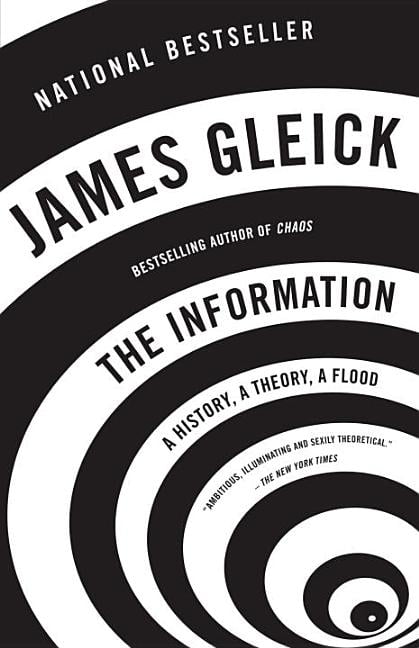

The idea of information pops up in places that seem obvious with hindsight, but which must have taken leaps of understanding at the time. Sending messages was expensive, so people came up with codes and abbreviations that were probably as bemoaned for spoiling language as cellphone contractions are today. How do you explain, as the first writers of dictionaries had to, what "alphabetical" meant when the alphabet itself was a new idea to most people?Īnyone who bemoans modern text-speak might raise an eyebrow at the chapter on the first electric telegraphs in the 19th century. Instead, each chapter jumps backwards and forwards in time, with vignettes that shake you out of assumptions about communication that you probably didn't know you had. The book is not written as a straightforward history, which might have been a temptation for someone charting the progress of an element of human society. It takes some confidence (and a good deal of nerve) to sweep across such a vast arena without losing your reader. Gleick's story spans savannahs, hunter-gatherers, ancient civilisations, alphabets, the beginnings of science (before anyone knew how to define or measure anything at all), mathematical codes, data, electronics and quantum physics. What we know as "information" – such a familiar concept to us now – took a long, long time to develop. You only need to read a few pages of this book – which opens with tales of African drumming – to realise what a sweeping and monumental task Gleick has set himself. James Gleick, the doyen of science writing and the author of the hugely successful Chaos as well as biographies of Richard Feynman and Isaac Newton, reviews the history of humanity through the lens of our attempts to make communication faster, more efficient and more available.

At each stage there has been information, and information has propelled the evolution of our society.

Or how about the earliest known records of writing, Sumerian clay tablets etched with cuneiform script? Or the invention of language some time in the prehistory of our species? At each stage, humans wanted to communicate something.


 0 kommentar(er)
0 kommentar(er)
